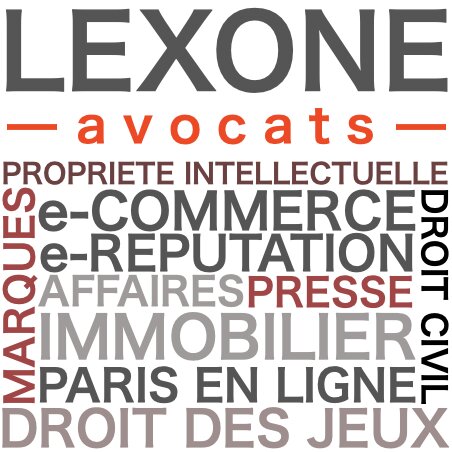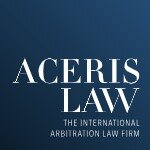Best Education Law Lawyers in Paris
Share your needs with us, get contacted by law firms.
Free. Takes 2 min.
List of the best lawyers in Paris, France
About Education Law in Paris, France
Education Law in Paris, France, governs the regulations and standards governing educational institutions, ensuring the adherence to national policies and requirements. It encompasses a wide range of issues including administration of schools and universities, curriculum requirements, teachers' rights, students' rights, and issues around equality and non-discrimination. The French education system is characterized by its highly centralized nature and operates under the supervision of the Ministry of National Education. Legal frameworks are primarily structured to uphold the values of the French Republic: liberty, equality, and fraternity, focusing on ensuring access to education for all.
Why You May Need a Lawyer
There are numerous situations where individuals or institutions in the education sector might require legal assistance: - Navigating disputes over student admissions, expulsions, or disciplinary actions. - Understanding laws related to special education, and accommodating students with disabilities. - Handling employment-related issues within educational institutions, such as unfair dismissals or workplace discrimination claims. - Protecting intellectual property such as curriculum content or research outputs. - Ensuring compliance with education regulations and standards to avoid penalties. - Addressing matters related to bullying, harassment, or discrimination in educational settings. - Dealing with cross-border educational issues, especially in international or bilingual schools.
Local Laws Overview
The key aspects of local laws relevant to education in Paris are grounded in the nation's statutory obligations. These include: - The French Code of Education, which outlines the principles, organization, and functioning of the education system. - The 2005 law for equality of rights and opportunities, participation, and citizenship of people with disabilities, which impacts educational accessibility. - Regulations on secularism in schools (Laïcité), ensuring religion does not interfere in public education. - GDPR compliance for education-related data processing and protection of students' personal information. - Labor laws as they relate to educators and administrative personnel within institutions. - Anti-discrimination statutes ensuring equitable treatment of students and staff across various demographic categories.
Frequently Asked Questions
1. Who regulates education in Paris, France?
The Ministry of National Education is responsible for setting policies and overseeing the education system in France, including Paris.
2. Are there special legal considerations for private schools?
Yes, private schools must meet specific criteria and maintain accreditation standards set by French authorities, although they have more curricular flexibility compared to public schools.
3. Can international students face legal issues with enrollment?
International students must ensure they have the appropriate visa and meet residency requirements for enrollment in French educational institutions.
4. What legal recourse is available for a student facing discrimination?
A student facing discrimination can file a complaint with the educational institution, the rectorate, or seek help from anti-discrimination bodies and potentially take legal action.
5. How is special education addressed legally?
French law mandates appropriate accommodations and support for students with disabilities, ensuring access to education is provided equitably.
6. Can parents legally challenge a school’s disciplinary decision?
Yes, parents can appeal disciplinary decisions through administrative tribunals if they believe the decision was unjust or violated procedures.
7. Is homeschooling legal in Paris, France?
Yes, homeschooling is legal but parents must declare annually and comply with educational standards and inspections.
8. What are the teacher’s legal rights in an employment dispute?
Teachers have rights protected under French labor laws, including unfair dismissal claims and workplace discrimination protections.
9. How does GDPR affect schools in Paris?
Schools must comply with GDPR, ensuring protection and proper handling of personal data of students and faculty members.
10. How can a school legally manage bullying incidents?
Schools should have an anti-bullying policy in place and must investigate incidents, provide support to victims, and take corrective action in accordance with French education law.
Additional Resources
The following resources can be incredibly helpful for individuals seeking advice or support related to Education Law in Paris: - The Ministry of National Education website offers a wealth of information on policies and regulations. - The Defender of Rights (Défenseur des droits) helps with issues related to discrimination and children's rights in education. - Local bar associations provide referrals to lawyers specializing in Education Law. - Non-profit organizations such as the FCPE (Federation of Councils of Parents of Pupils) offer guidance and advocacy for educational rights. - European Union Education agencies, especially concerning cross-border education regulations.
Next Steps
If you require legal assistance in the area of Education Law in Paris, consider the following steps: - Clearly define your issue or question related to Education Law. - Gather relevant documentation or evidence pertaining to your case or concern. - Consult with a qualified Education Law attorney in Paris to understand your options and possible outcomes. - Utilize online legal directories and local bar associations for lawyer referrals. - Take advantage of legal aid options if financial constraints are present. - Consider reaching out to relevant educational bodies or non-profit organizations that might provide support or mediation services.
Lawzana helps you find the best lawyers and law firms in Paris through a curated and pre-screened list of qualified legal professionals. Our platform offers rankings and detailed profiles of attorneys and law firms, allowing you to compare based on practice areas, including Education Law, experience, and client feedback.
Each profile includes a description of the firm's areas of practice, client reviews, team members and partners, year of establishment, spoken languages, office locations, contact information, social media presence, and any published articles or resources. Most firms on our platform speak English and are experienced in both local and international legal matters.
Get a quote from top-rated law firms in Paris, France — quickly, securely, and without unnecessary hassle.
Disclaimer:
The information provided on this page is for general informational purposes only and does not constitute legal advice. While we strive to ensure the accuracy and relevance of the content, legal information may change over time, and interpretations of the law can vary. You should always consult with a qualified legal professional for advice specific to your situation.
We disclaim all liability for actions taken or not taken based on the content of this page. If you believe any information is incorrect or outdated, please contact us, and we will review and update it where appropriate.















